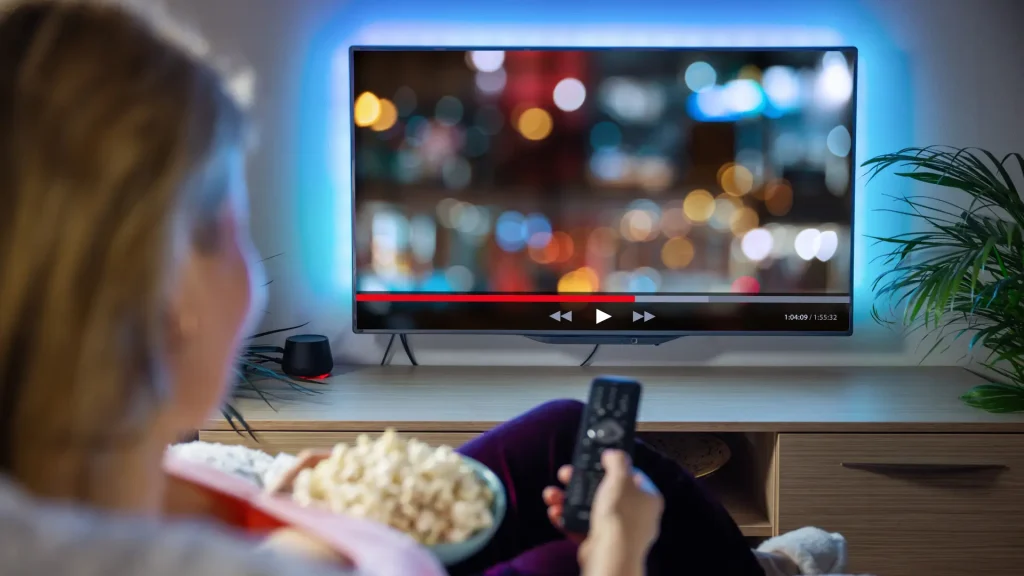In the rapidly evolving world of television entertainment, the debate between IPTV (Internet Protocol Television) and traditional cable is more relevant than ever. As more people consider cutting the cord, understanding the differences between these two options is crucial in making an informed decision. This blog post will break down the key aspects of IPTV and traditional cable to help you determine which one is the best fit for your needs.
1. Content Variety and Flexibility
IPTV: IPTV offers a vast array of channels and on-demand content from around the world. With IPTV, you can access live TV, movies, series, and specialty channels tailored to your interests. The ability to customize your subscription with specific packages or channels adds to its appeal.
Traditional Cable: Cable TV provides a fixed selection of channels based on the package you choose. While cable offers a broad range of content, it typically lacks the flexibility to add or remove channels individually. You’re often limited to pre-set bundles, which may include channels you never watch.
Verdict: If you value variety and customization, IPTV has the edge.
2. Cost Efficiency
IPTV: IPTV services are generally more affordable than traditional cable. With IPTV, you can choose from various pricing plans, often without the need for long-term contracts. Many IPTV providers also offer pay-as-you-go options, allowing you to control your monthly expenses.
Traditional Cable: Cable TV tends to be more expensive, especially when you factor in additional fees for equipment rentals, installation, and premium channels. Long-term contracts are common, and breaking them can result in hefty cancellation fees.
Verdict: IPTV is the more budget-friendly option, offering more flexibility in pricing.
3. Device Compatibility
IPTV: One of IPTV’s biggest advantages is its compatibility with multiple devices. You can watch your favorite shows on smartphones, tablets, laptops, smart TVs, and streaming devices like Roku or Amazon Fire Stick. This flexibility allows you to take your entertainment on the go.
Traditional Cable: Cable TV is primarily designed for use with your home television. While some providers offer apps for streaming on mobile devices, the experience is often limited compared to the seamless integration provided by IPTV.
Verdict: For multi-device compatibility and mobility, IPTV is the clear winner.
4. Picture and Sound Quality
IPTV: IPTV often delivers superior picture quality, with many services offering HD and 4K streaming options. Since IPTV relies on your internet connection, the quality is generally consistent, as long as you have a stable and high-speed internet connection.
Traditional Cable: Cable TV also offers HD channels, but the quality can be affected by factors like signal interference, especially during bad weather. Cable services are generally reliable, but the overall quality may not always match the crispness of IPTV.
Verdict: IPTV can provide a better viewing experience, particularly if you have a strong internet connection.
5. On-Demand Content and Features
IPTV: IPTV shines when it comes to on-demand content. You can watch movies, TV shows, and sports events whenever you want, with the ability to pause, rewind, and fast forward. Many IPTV services also offer features like cloud DVR, allowing you to record live TV and watch it later.
Traditional Cable: Cable TV offers some on-demand content, but it’s often limited compared to the vast libraries available on IPTV. While DVR is available with cable, it usually comes at an additional cost, and storage capacity can be limited.
Verdict: For on-demand viewing and advanced features, IPTV offers a more robust experience.
6. Installation and Setup
IPTV: Setting up IPTV is typically straightforward. You can often get started by downloading an app on your device and subscribing to a service. There’s no need for professional installation or extra equipment beyond your internet connection and a compatible device.
Traditional Cable: Cable TV usually requires professional installation, which can involve scheduling an appointment, setting up cable boxes, and possibly dealing with complicated wiring. The initial setup can be time-consuming and often incurs extra fees.
Verdict: IPTV is easier to set up, with minimal hassle and no need for special equipment.
7. Reliability and Performance
IPTV: The performance of IPTV is heavily dependent on your internet connection. A high-speed, stable connection will ensure smooth streaming, but slower or unreliable internet can lead to buffering and interruptions.
Traditional Cable: Cable TV is generally reliable and not dependent on your internet connection. It’s less susceptible to buffering issues, though signal interference can occur, particularly during extreme weather conditions.
Verdict: If you have a strong internet connection, IPTV will perform well, but if your internet is unreliable, traditional cable might offer more consistent performance.
Conclusion: Which One Is Right for You?
The choice between IPTV and traditional cable ultimately depends on your priorities. If you value flexibility, content variety, and the ability to watch TV on multiple devices, IPTV is likely the better option. It’s also more cost-effective and easier to set up. However, if you prioritize consistent performance without relying on an internet connection, and prefer the reliability of a traditional TV service, cable might be the way to go.
Consider your viewing habits, budget, and the quality of your internet connection when making your decision. Whichever you choose, the most important thing is finding a service that fits your lifestyle and delivers the entertainment you love.

